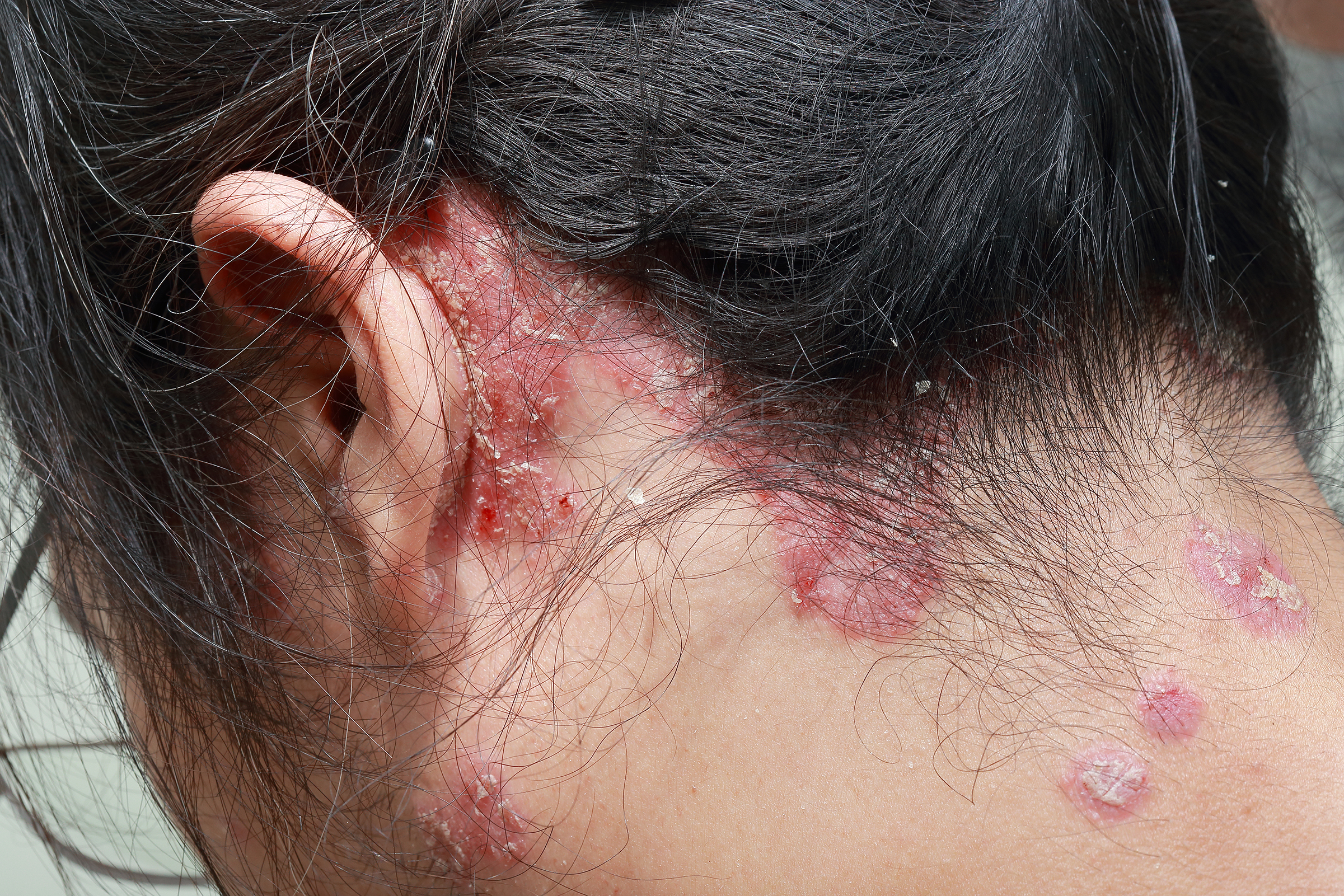
Have you noticed changes in the skin of your scalp? You may be experiencing a skin condition known as scalp psoriasis.
With the right treatment you could control your symptoms.
About scalp psoriasis…
Scalp psoriasis is a specific type of psoriasis, a condition that causes red skin plates, dry and scaly on the body. In psoriasis of the scalp, these scales appear on the head, under the hair.
It is similar to another condition called seborrheic dermatitis. This is a form of eczema that affects the scalp, face, and chest. To make sure it is one condition or another, you should visit a doctor before starting to use the treatment. They look very similar and it is very easy to confuse them.
Symptoms of psoriasis of the scalp
Symptoms vary depending on the severity of your condition. The key feature is flakes of skin under the hair that are dry, peeling off the skin (or raised), red, and covered with silvery scales. These are known as "plates."
People with psoriasis of the scalp may also experience:
- Dandruff-like shedding of skin
- pain or burning
- Itching
- Sensation of tightness in the scalp
Plaques can be small and develop in one or two areas, or they can cover the entire scalp. Sometimes psoriasis of the scalp can be extended to the forehead, neck and behind the ears. The plates form under the hair, and this sometimes prevents the skin from shedding, making the plates look quite thick.
Sometimes psoriasis of the scalp can cause hair loss. This happens if the plates are very thick or if we scratch the affected skin of the scalp, and even if we apply very strong treatments. The good news is that this hair loss is usually temporary.
What causes scalp psoriasis?
Psoriasis is caused by an underlying problem with the way skin cells are created in the body. In people with psoriasis, skin cells are replaced too quickly: New cells, which are not fully mature, begin to rapidly accumulate on the surface of the skin, causing these red, scaly plaques to develop.
A problem with the immune system is thought to cause psoriasis and genetic and environmental factors they can also play an important role in the development of psoriasis of the scalp. We are more likely to develop psoriasis if other people in the family have it.
Psoriasis flare-ups are usually caused by exposure to certain triggers.
The most common triggers of psoriasis would be:
- Skin lesions
- Smoking and drinking too much alcohol
- Stress
- Hormonal changes
- Certain prescription drugs, for example lithium
- throat infections
- Conditions that affect the immune system, for example, HIV
Psoriasis is not contagious, which means you cannot catch it or pass it on to anyone else.
Shampoos and other treatments
Because scalp psoriasis occurs under the hair, it can be a bit more difficult to treat than other types of psoriasis. Hair makes it difficult to apply the treatment and sometimes it prevents the plates from falling off quickly. Having said that, there are many treatments available for this condition.
Treatments for this condition are usually topical, that is, are applied directly to the affected skin. Topical treatments for psoriasis of the scalp generally work by reducing inflammation and itching, and slowing down the production of skin cells.
Commonly used topical treatments for scalp psoriasis include:
- corticosteroids
- analogs of vitamin D
- dithranol
- coal tar
These products can be purchased in the form of shampoos, lotions, solutions, foams, gels, and ointments.
Topical treatments for moderate to severe form
If the symptoms are severe and the scalp plaques are thick, you will probably need treatment prescribed by your GP, who may recommend a topical treatment containing corticosteroids, vitamin D analogues or dithranol.
You should use this treatment exactly as directed by your doctor. Make sure to apply the medicated product directly on the scalp and not on the hair.
In addition to these medicated treatments, you can also use emollients on your scalp, as they can help soften thick plaques. An emollient is a rich moisturizer that prevents itching and inflammation and creates a protective barrier on the skin, sealing in moisture.
If you are going to use an emollient on your scalp, do it as follows:
- Massage the emollient into the scalp, section by section.
- Wrap your head in a towel or shower cap and leave it on for at least an hour.
- Wash your hair with coal tar or regular shampoo.
- Use a comb to gently massage the scalp and remove the skin flakes, being careful not to damage the skin.
- Wash your head again.
Other treatments
If your scalp psoriasis is severe and doesn't respond to the types of treatments described above, you may need a referral to a dermatologist.
Advanced techniques for treating psoriasis of the scalp include:
- ultraviolet light phototherapy
- Systemic treatments in the form of tablets, capsules or injections
- Combination treatments, for example, phototherapy with coal tar or dithranol
Before you start using any treatment for scalp psoriasis, talk to a pharmacist or doctor.
